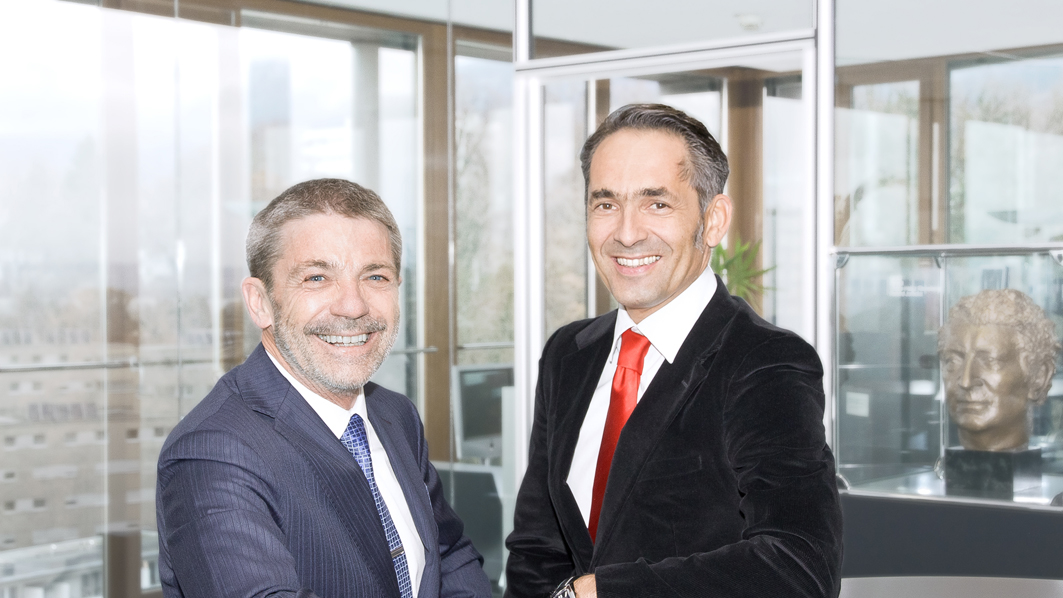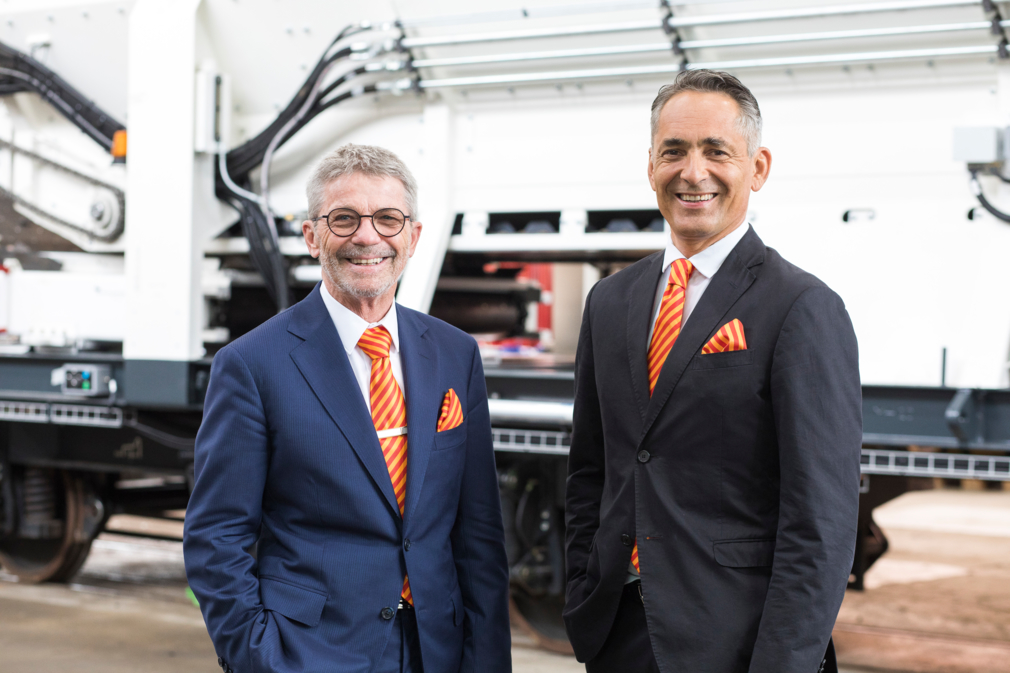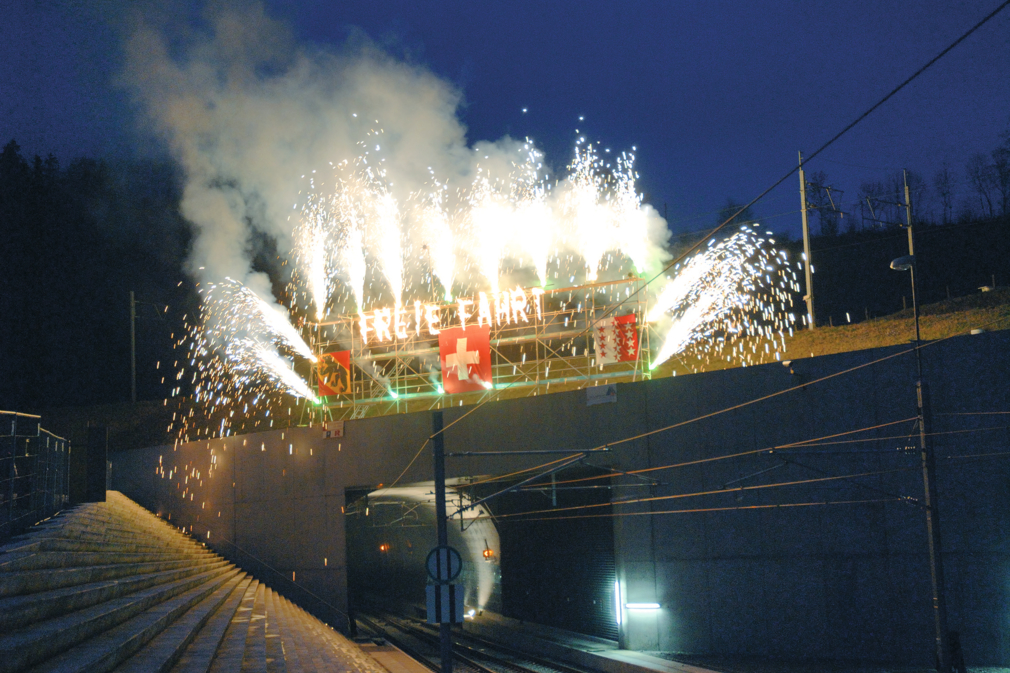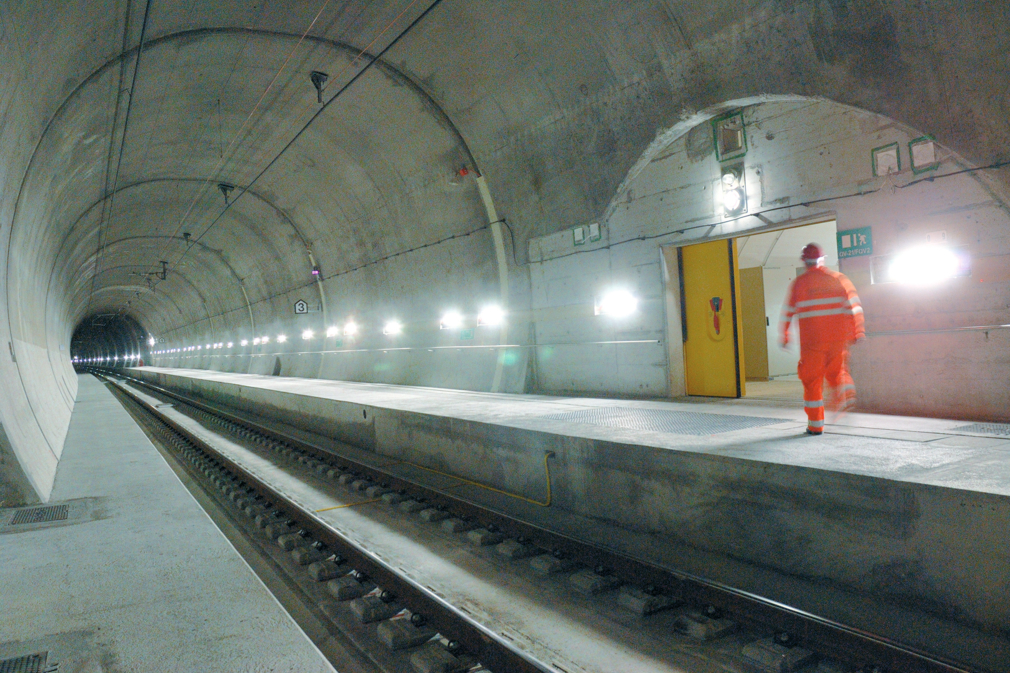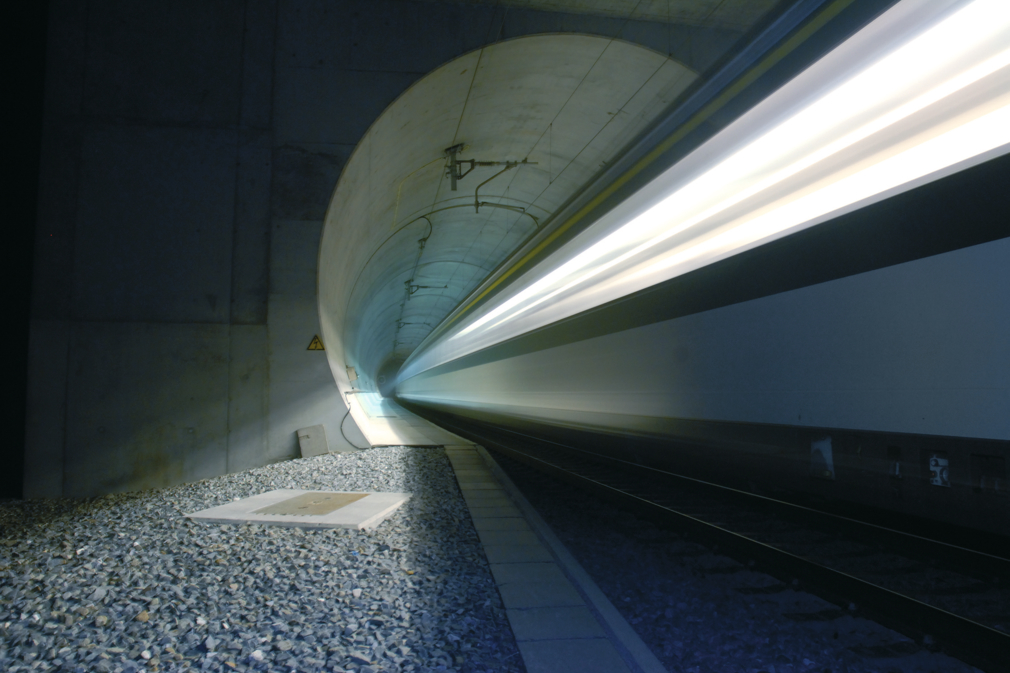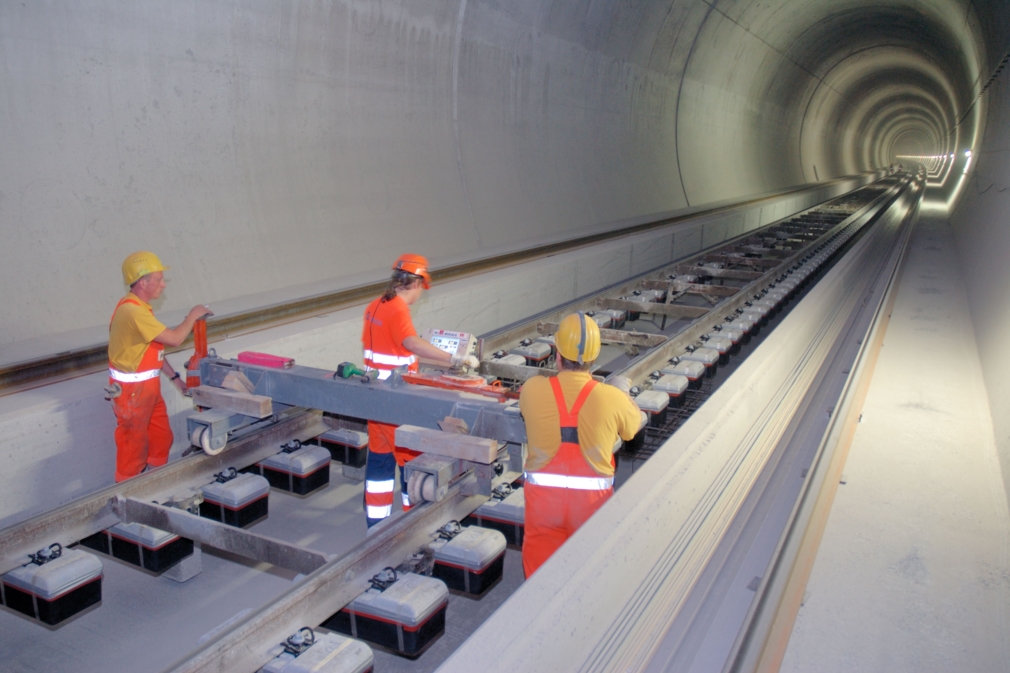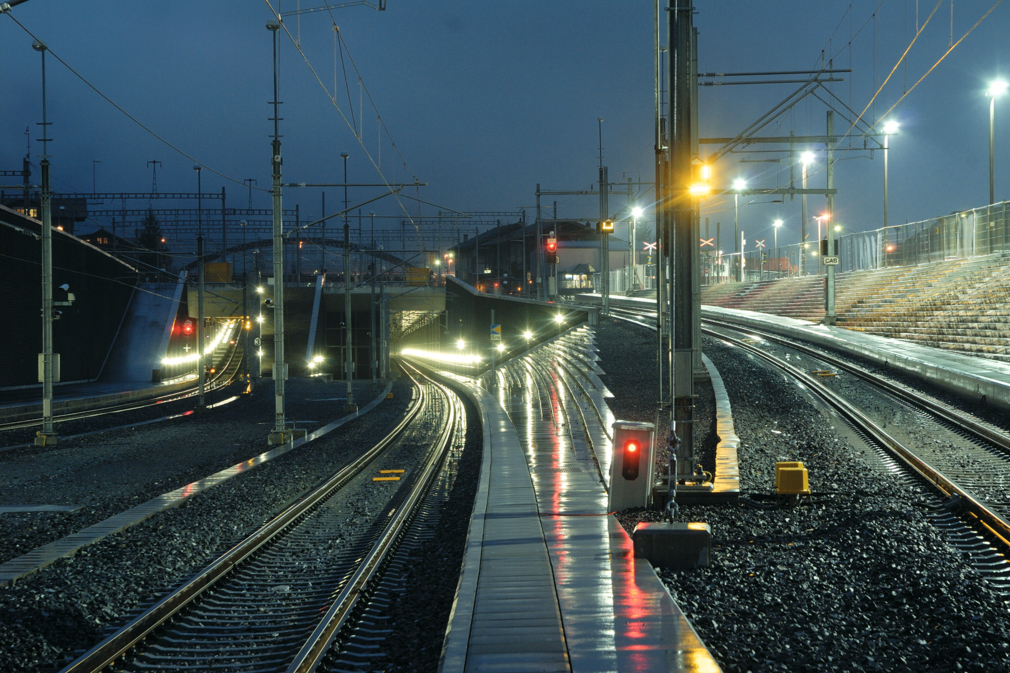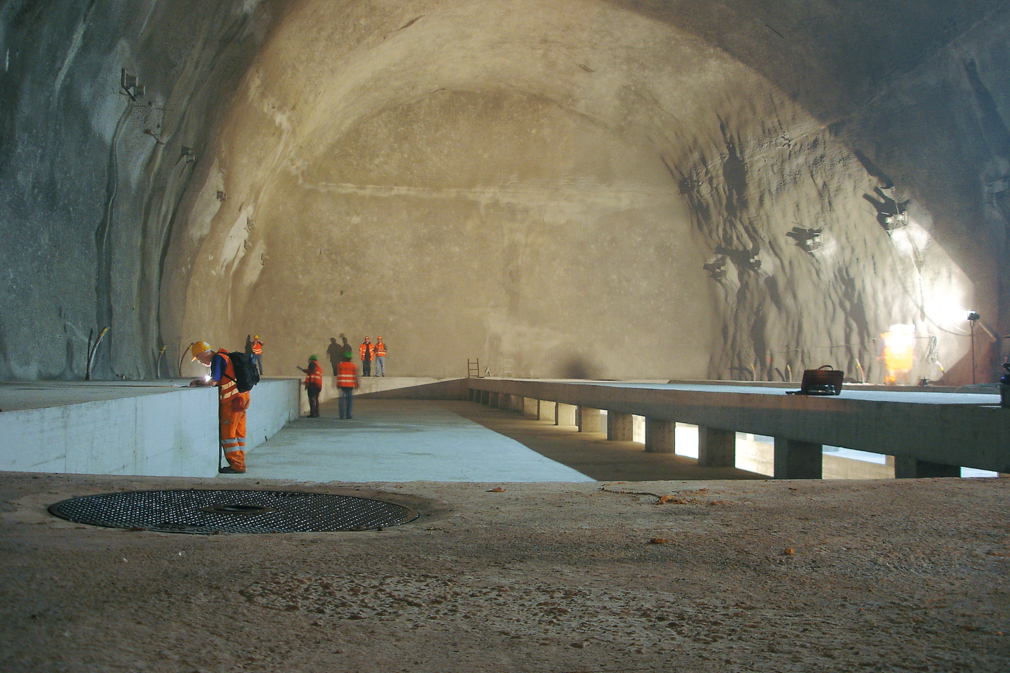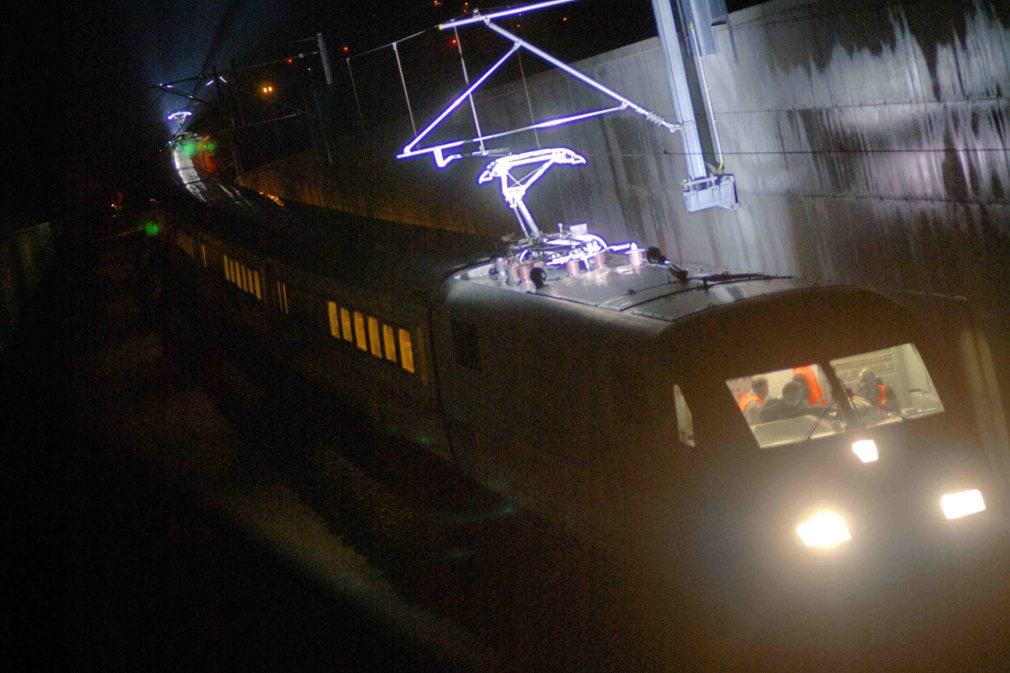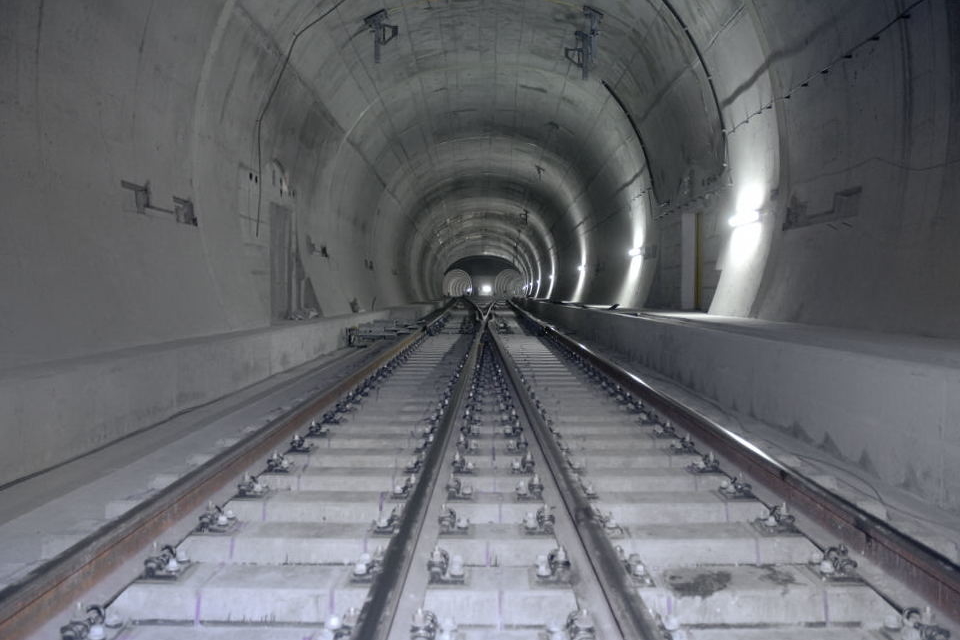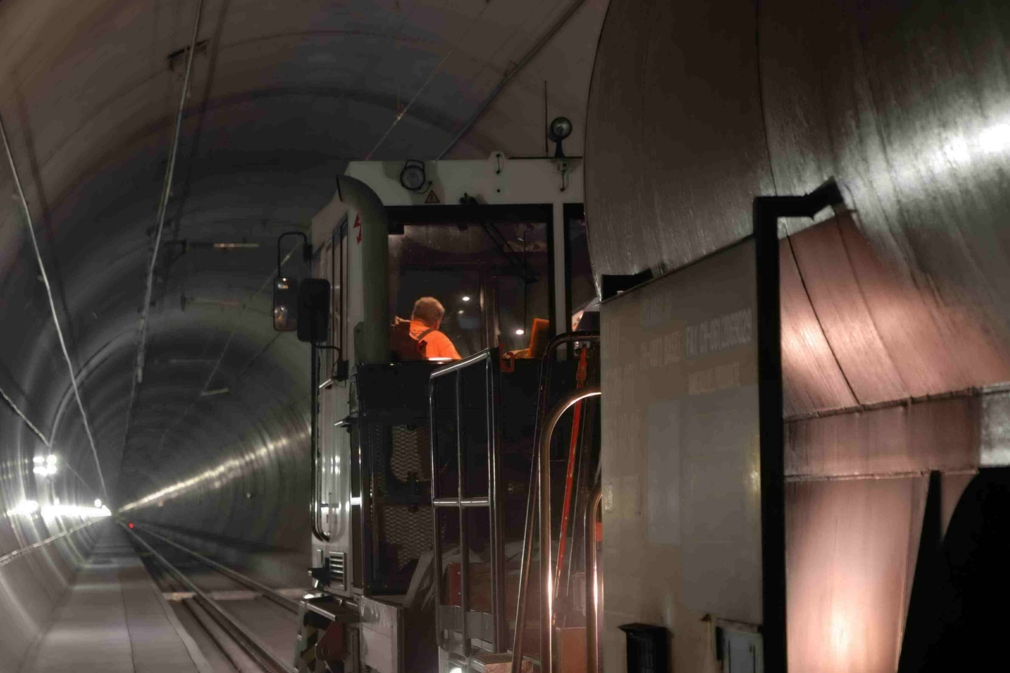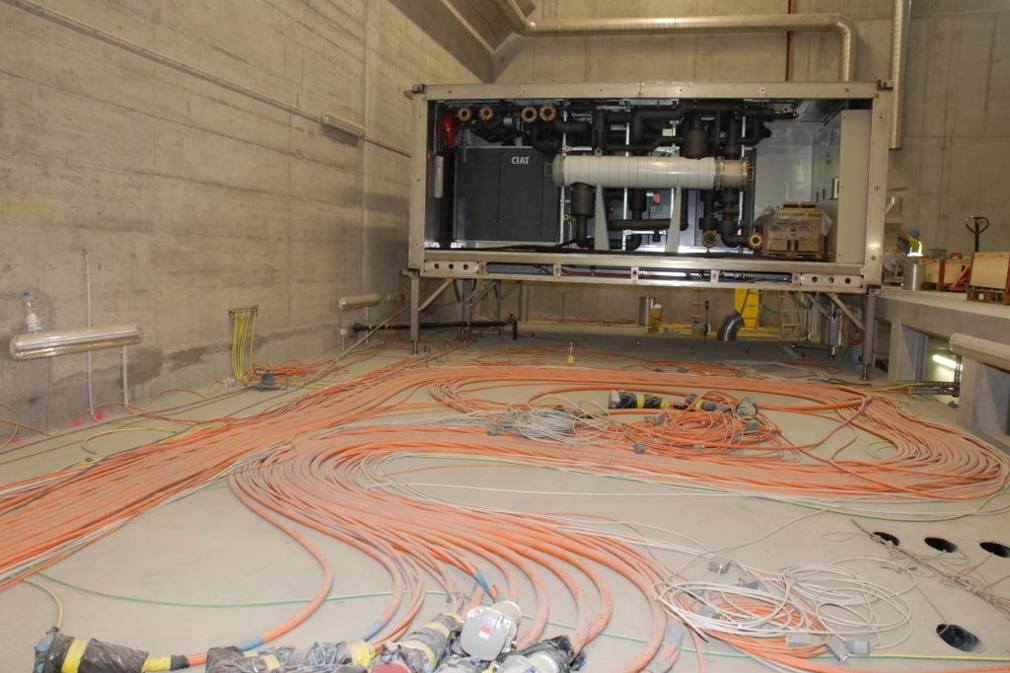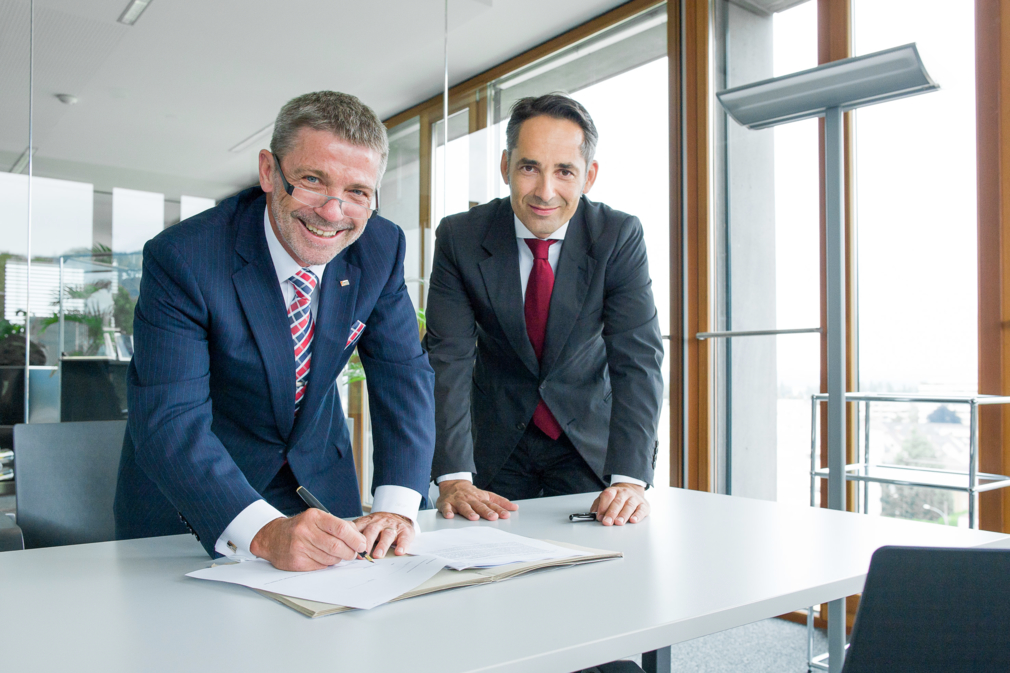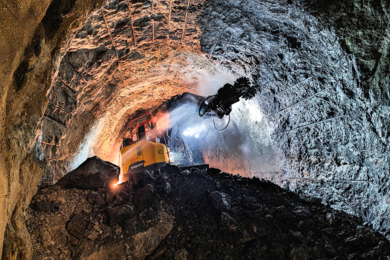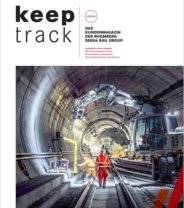How competition turned into a success story – and what the Lötschberg tunnel has to do with it
In the railway technology market, the Rhomberg Sersa Rail Group is a well-established player. But behind this success lies an extraordinary story of two companies – and personalities – coming together. In conversation, Koni Schnyder, President Owner Board of Rhomberg Sersa Rail Group, and Hubert Rhomberg, Member Owner Board, reflect on the early days of their collaboration, describe key milestones, differences and common ground – and explain why trust, corporate culture, and a spirit of innovation matter more than any hierarchy.
Mr. Rhomberg, Mr. Schnyder, do you remember your first meeting?
Koni Schnyder: One memory that stands out is when Hubert’s family visited us in Finland. That meeting gave us a chance to get to know each other beyond business – specifically while grilling salmon over an open fire. I think from that moment on, we both knew that while we were different, we could fully respect and trust one another.
Hubert Rhomberg: Our first contact was during work on the Lötschberg Tunnel. We were jointly involved in a contract won by the then Rhomberg Bahntechnik. The former Sersa supported us with all welding and logistics services, including locomotives and train drivers. We didn’t know each other personally before that, but of course, our companies were familiar names to one another. I believe Koni initially saw us as a potentially threatening competitor pushing into the Swiss market through project business.
Was there already a sense of connection or mutual appreciation back in the Lötschberg days?
Koni Schnyder: Hubert and I were already discussing the challenges of our industry back in 2005, and in 2008 the Rhomberg family purchased a machine from us. It was a process of gradually growing closer, always based on mutual respect, culminating in the successful delivery of the Lötschberg Tunnel project.
Hubert Rhomberg: At first, our relationship was strictly professional. But during the bidding process and later on the project itself, a fair and warm relationship developed. Koni scored early points by providing us with state-of-the-art locomotives acquired specifically for the project – he’s a fan of logistics locomotives. And we impressed by always presenting ourselves to the client as ONE team, not as contractor and subcontractor. I think we proved to each other time and again that we were reliable partners – especially in tough moments.
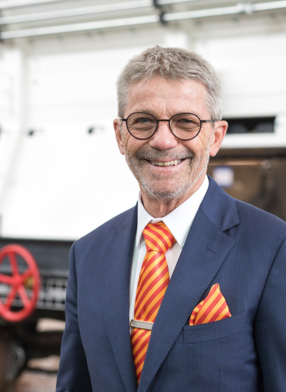
When did the relationship become closer?
Hubert Rhomberg: Personally, we really grew closer at the opening celebration of the Lötschberg Tunnel. Before that, we had only seen each other occasionally, for instance during contract negotiations. But when we celebrated the successful completion of that major project together and saw what each of us had accomplished, a genuine mutual interest was sparked.
Koni Schnyder: After the successful conclusion of the Lötschberg project, the idea of joining forces came up. Hubert and I both knew we had the personal foundation for it.
How did that evolve into the idea of building something bigger together?
Koni Schnyder: Sersa was a market leader in Switzerland, already had substantial narrow-gauge experience and its own rolling stock. Rhomberg Bahntechnik, on the other hand, was a leader in Austria with a strong track record in slab track construction. So the merger made perfect sense. With Sersa bringing in the Canadian market and Rhomberg Bahntechnik the Australian market, we also created a regionally diversified group.
Hubert Rhomberg: As Koni mentioned: we complemented each other perfectly – personally and in terms of our companies. Koni and I are fundamentally different in how we think – I’m more long-term and holistic, he’s very structured and focused. But maybe that’s exactly why we developed such immense trust and respect. As family entrepreneurs, we’re also totally aligned when it comes to culture, openness to innovation, and technology.
The railway technology competencies of Rhomberg and Sersa were very different, but precisely because of that, we achieved huge synergies. Today, Rhomberg Sersa Rail Group offers a portfolio – especially in tunnel refurbishment and equipment – that is truly unique in the industry in both scope and composition.
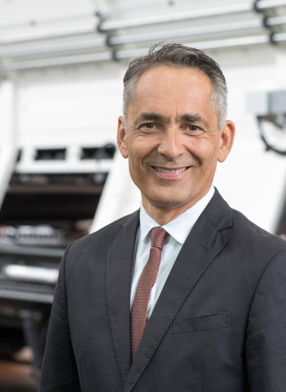
Were there particular events that solidified this collaboration?
Hubert Rhomberg: On a personal level, I can’t pinpoint one single "aha moment." Every time I dealt with Koni, there was a sense of mutual appreciation and a very pleasant working relationship. Challenging, yes – we’re both strong personalities – but always successful in the end.
On a company level, one moment stands out: our first major team outing on Lake Lucerne. The whole team was on a boat – it really created a sense of unity.
Koni Schnyder: From my perspective, it was the challenging business situations that strengthened our collaboration. I’m thinking of the difficult period in Australia the year we merged, the acquisition of three companies from Balfour Beatty in Germany, the complex negotiations to buy into the Canadian company, and later, the challenges surrounding Stuttgart 21.
And professionally – are there projects that stand out in your memory?
Hubert Rhomberg: The Koralm Tunnel comes to mind immediately. It was the first time we delivered all rail and equipment works entirely in-house. Before, we also acted as general contractors but relied heavily on subcontractors. With our merger and the resulting synergies, Rhomberg Sersa Rail Group aimed to become a true full-service provider in railway technology – offering everything ourselves and calculating transparently and efficiently. And in the Koralm Tunnel – just like recently in the Semmering Base Tunnel where we again won the complete service package – we succeeded. For me, that proves our strategy is working. These projects let us showcase everything we've built up over the last 20 years.
Koni Schnyder: Yes, the Koralm Tunnel. It proved we could handle the complexity across all disciplines – a real milestone for our group. I’m also personally proud that we won the contract for the new ICE maintenance depots in Cottbus. This project was awarded under a new, innovative rail partnership model where design and construction firms are brought in early and judged by shared success. We were able to fully leverage our capabilities as a full-service provider – and were subsequently awarded the second hall as well by Deutsche Bahn.
Looking at how the two companies were integrated: how do you turn many sites into one group?
Hubert Rhomberg: By leading by example. Koni and I work together in a spirit of trust, partnership, and friendship – and that sets the tone. We've also kept a decentralized model that allows entrepreneurial freedom while fostering collaboration across the group.
Koni Schnyder: As mentioned, we were complementary from the very beginning – as entrepreneurs and in terms of our companies. The global rollout of the "Rhomberg Sersa Rail Group" brand, which is now well advanced, also helped make our unity visible down to the last corner of the organization. I'm proud to say that many of our sites pleasantly surprised us with their ideas and initiatives for implementing the one-brand strategy. We could feel that the locations wanted to become part of a group – they weren’t forced into it.
Back to the personal level: Mr. Rhomberg, what do you value most about Mr. Schnyder?
Hubert Rhomberg: His unwavering passion for railways and railway construction. He’s still deeply involved, both technically and strategically. And on a personal level: you can talk to him about anything – from technology and finance to innovation. It’s just fun.
Mr. Schnyder, what do you value most about Mr. Rhomberg?
Koni Schnyder: I value Hubert’s open, direct, and honest nature – and the fact that he’s always thinking outside the box. He’s a fast thinker, always looking for creative solutions. We both share a certain dissatisfaction with the status quo – and a drive to keep pushing and developing our group.
What have you learned from each other personally?
Koni Schnyder: I’ve found in Hubert a partner and sparring partner I can fully trust – something that’s unfortunately no longer a given these days.
Hubert Rhomberg: From Koni, I’ve learned how to prepare efficiently and run productive meetings – the way he handles and executes that really impressed and influenced me. Beyond that, there are many areas where I’ve gained new perspectives and arguments through Koni that have helped me grow – sometimes more, sometimes less. And I’m sure our collaboration has also shaped Koni. Our relationship, I believe, is like the Eurotunnel between England and France: a long-term, stable connection between two different worlds.
